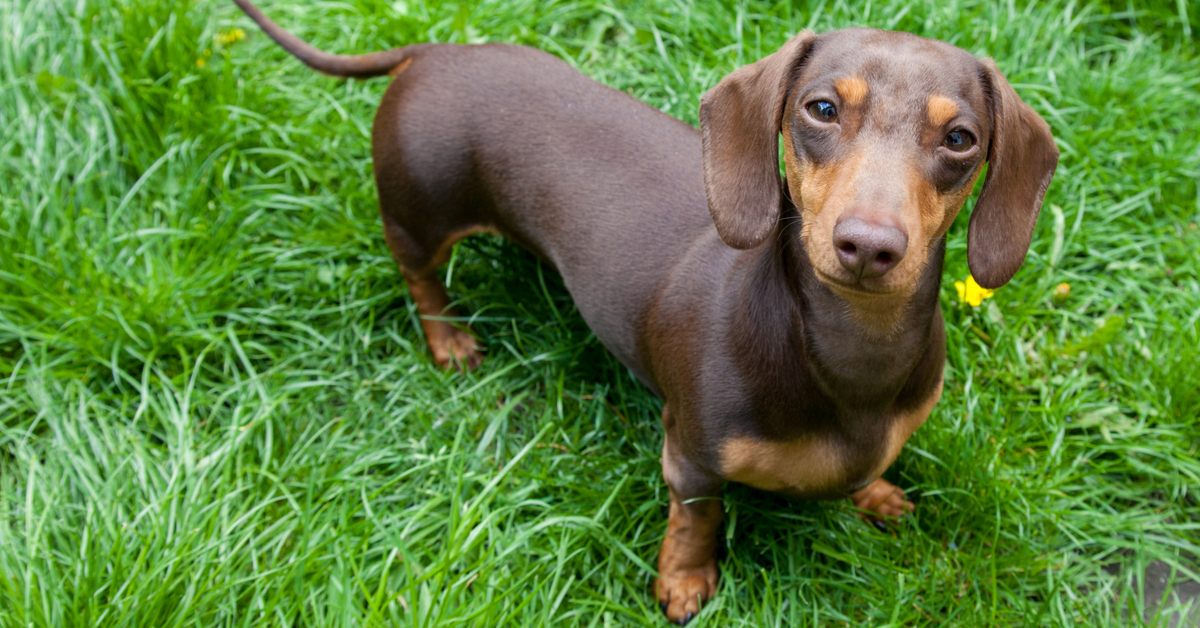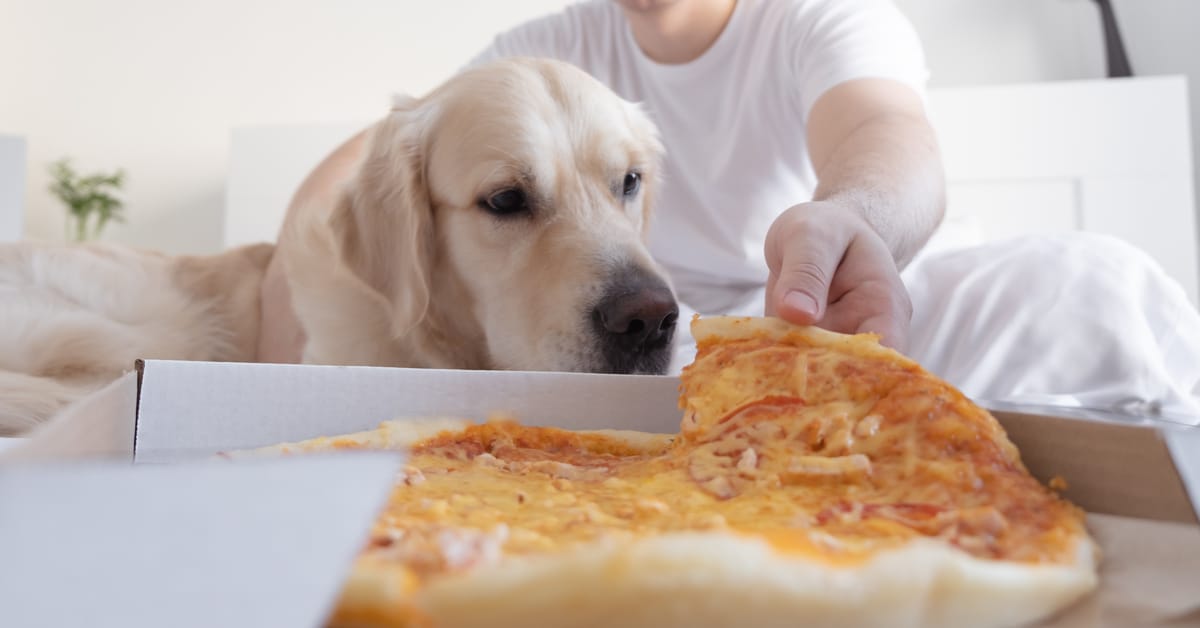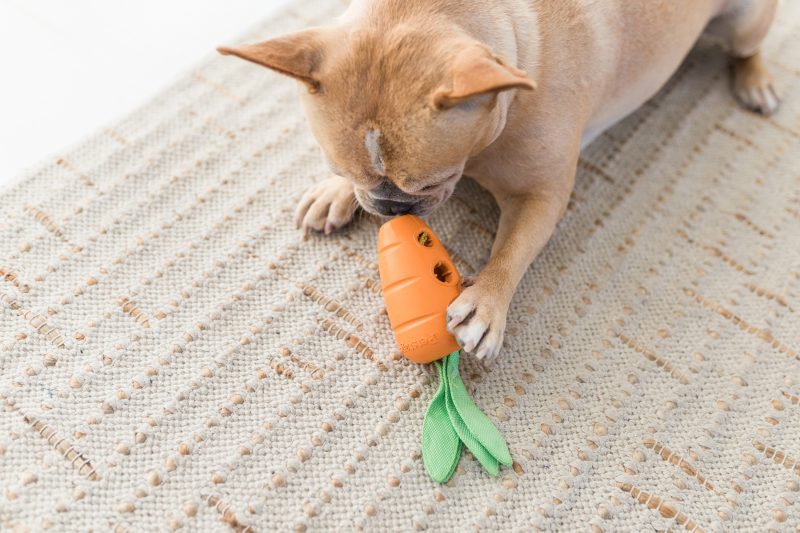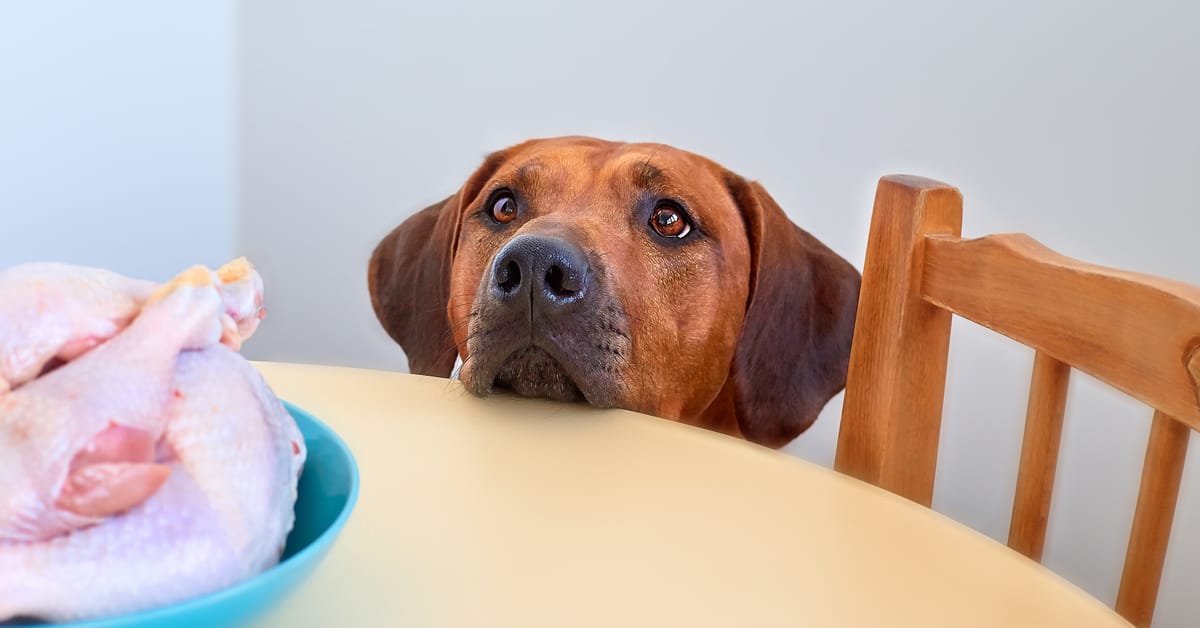You know how it goes; you’re sitting on the couch watching TV and eating a pizza. Or maybe you’ve got a nice charcuterie board to snack on. Your furry friend is right beside you, and he is giving you those eyes. Those pleading eyes that say, “Can I have a piece?”
It’s hard to resist those eyes, but more importantly, is it safe to share human food with your dog? It seems like the meat on that pizza would be something he would just love and you can’t imagine it might harm him.
Well, the answer is complicated. Can dogs eat salami? Salami isn’t toxic in and of itself for your dog, but it does contain high levels of sodium and fat and that can pose certain health risks.
Why Is Salami Bad for Dogs (and maybe you too)?

The high sodium and fat content in salami could put your dog at risk for problems like salt poisoning or pancreatitis. Some salami includes seasonings like garlic powder as well, which is extremely toxic to your pup.
These can be very serious conditions. While dogs are mostly meat-eaters, certain processed meats like salami have been modified to enhance their taste for human consumption and also to prolong their shelf life.
That typically means these kinds of cured meats have additives and preservatives like nitrates that are not really very healthy for your furry friend. For example, one slice of salami can contain more than 200 milligrams (mg) of sodium and up to 26 percent fat! You might want to lay off eating salami too!
For reference, a medium-sized dog should only consume somewhere in the neighborhood of 100 mg of sodium daily, so that single slice of salami is already double that dose! For that reason, salami is not a safe treat for your dog, especially if they are a small dog.
You might be wondering exactly what the side effects of this much sodium can do to your pooch. Of course, like humans, dogs’ bodies do need some sodium for them to be healthy, but when they get too much, it can cause a number of different problems.
Excess sodium can cause your canine friend to be more thirsty, and when he drinks more, he will also experience frequent urination. A large enough dose of sodium can also result in what is known as sodium ion poisoning. This condition can cause kidney damage and that can lead to kidney failure. Kidney failure is a life-threatening condition that will require immediate medical attention.
What About the High-Fat Content of Salami?

Sodium is a major reason why your dog shouldn’t eat salami, but another big problem with processed meats is that they are also high in fat content. Of course, high-fat foods can lead to obesity, and this is true for your dog as well as for you, but there’s another reason why you want to avoid feeding your dog foods with high-fat content.
When your dog eats certain types of meat that contain a high amount of fat, it can overstimulate the production of certain enzymes by his digestive system. These enzymes are normally produced by the pancreas to aid in digestion, but when overstimulated, it can result in inflammation of the pancreas.
An inflamed pancreas is called pancreatitis, and this is an extremely painful and dangerous condition. It can cause your dog to experience vomiting and diarrhea, become dehydrated, and throw off his healthy metabolic balance. It can even be a life-threatening condition.
Can Dogs Eat Pepperoni?

Pepperoni is another processed meat that you should probably avoid giving your dog for the same reasons as you should avoid giving him salami. All of these kinds of processed meats — including bologna — and cured meats like bacon, ham, cured sausage, and beef jerky contain not only high-fat content and too much salt, they also have unhealthy preservatives.
These processed meats often contain sulfite preservatives, and these kinds of preservatives and additives can cause a thiamine deficiency. Such a deficiency can even lead to death. There are several kinds of human foods that contain these types of preservatives including pizza and potato chips.
For that reason, it’s probably best for your dog’s health not to share that slice of pizza with him. Instead, you might want to have some healthy dog treats or dog food on hand that you can give him to eat while you’re enjoying the pizza.
Which Human Foods are Healthy for Dogs?

As humans, it’s not unusual for us to assume anything we can eat, our best furry friends can eat, but that just isn’t true. There are, however, some human foods that your dog can safely eat. Here is a list of what you can share with your pooch without provoking any health problems.
- Carrots: These can be a healthy part of your dog’s diet for a number of reasons. First, they are a good source of Vitamin A which is beneficial for your dog’s immune system, skin, and coat. Too much Vitamin A is bad, however, so remember to feed your dog carrots in moderation. The second reason carrots are a healthy addition to your dog’s diet is that chewing on carrots can help remove plaque from your dog’s teeth and promote good dental health.
- Apples: An apple a day helps keep the doctor — and the veterinarian — away. They are a great source of Vitamins A and C, and they are a good source of fiber. That can help regulate your best friend’s digestive system. Just don’t let your dog eat rotten apples, however, because that can lead to alcohol poisoning. And never let them eat apple cores.
- White Rice: Plain, cooked white rice is a great option if your dog is suffering from any kind of digestive system problem. It is a food that is easy to digest, and it helps bind stool. If your dog has diabetes, however, don’t give him too much since it can cause his blood sugar levels to rise.
- Dairy products: Milk, cheese, and plain Greek yogurt are safe for dogs to eat in small quantities. Dogs, like most animals, can become lactose intolerant after weaning, however, so if he shows any signs of health issues like vomiting or diarrhea after consuming dairy products, it’s probably best to avoid dairy altogether.
- Fish: Just like in humans, fish is a very good source of protein for dogs. Salmon and tuna are rich in omega-3 fatty acids which help keep your dog’s immune system, skin, and coat healthy. What’s more, the B vitamins in shrimp help maintain your furry friend’s digestive system and promote healthy blood circulation. That helps prevent heart disease. It is important to be sure the fish is cooked, however, since raw fish can contain parasites. Try Wholesome Pride salmon dog treats.
- Chicken: This is a great source of protein and plain, boiled chicken that is unseasoned can help if your dog has an upset stomach.
- Peanut Butter: Unsalted peanut butter without any added sugar or sweeteners is safe for your dog to eat, but it should be in moderation. It has healthy vitamins (E, B, and niacin), and healthy fats as well as an abundance of protein. It’s particularly important, however, to make sure any peanut butter you give your dog doesn’t have a sweetener called xylitol. Xylitol is highly toxic to dogs, and if your dog eats something with xylitol in it, you should contact your veterinarian or an Animal Control Poison Center immediately.
- Plain Popcorn: As long as the popcorn doesn’t have any salt, butter, or sugar added, it can be a nutritional treat for your dog. It contains healthy minerals like magnesium, phosphorous, and zinc, but don’t let your pooch eat the unpopped kernels since they can be a choking hazard.
- Other Safe Meats: Unseasoned, cooked pork and turkey are both safe for dogs to eat, but watch the fat content, particularly in pork, as foods with a high-fat content can cause pancreatitis.
- Other Safe Fruits: Blueberries are a rich source of fiber, antioxidants, and healthy phytochemicals which can help improve age-related health issues in your dog. Bananas are full of magnesium which is good for bone health, but they are high in sugar so your dog should only eat them occasionally. Seedless watermelon can help keep your dog hydrated and is a good source of Vitamins A, C, and B-6.
- Other Safe Vegetables: Cucumbers and green beans are good sources of Vitamin K, calcium, iron, and other healthy minerals. Cabbage is great for pups, too!
Human Foods Dogs Should Never Eat

While the following foods are safe and even good for humans, these are foods your dog should never eat. If they do, you’ll want to contact your veterinarian or the Animal Poison Control Center immediately.
- Avocado: These contain a substance called persin which is toxic to dogs and causes vomiting and diarrhea.
- Cherries: Cherry pits actually contain cyanide which is poisonous. Moreover, they can be a choking hazard and even block your dog’s intestines if they swallow them.
- Chocolate, coffee, and caffeine: Caffeine toxicity in dogs is no joke, so never give anything that contains caffeine to dogs. Products containing caffeine contain methylxanthines which are extremely toxic for dogs and can cause vomiting, an abnormal heart rate, seizures, and even death.
- Raisins, grapes, sultanas, and currants: These are all highly toxic for dogs. Even small amounts can cause kidney damage and failure, and can even be fatal.
- Citrus fruits: These contain citric acid which can upset your dog’s stomach, and in larger quantities, can lead to nervous system depression.
- Cinnamon: Large amounts of cinnamon can cause vomiting, diarrhea, and liver disease in dogs.
- Certain coconut products: These contain high levels of potassium, particularly coconut water, and even the flesh of the coconut can upset your dog’s stomach and cause diarrhea. Coconut oil for dogs is safe.
- Nuts: Some nuts, like macadamia nuts, are poisonous for dogs and will cause muscles weakness, vomiting, lethargy, and overheating. They can also be a choking hazard.
- Onions, garlic, and chives: Any plant that is part of the Allium genus contains substances called organosulfoxides which are toxic to dogs and can cause anemia, vomiting, diarrhea, and stomach pain.
- Raw meat: Raw meat can pose a health risk for several reasons including food poisoning. While many manufacturers of dog food promote raw meat, it’s important to understand the health problems it can cause and the fact that it might not provide them with a complete nutritional balance.
- Raw eggs: These can lead to a biotin deficiency in dogs which can affect their skin and coat.
- Salty foods: As in the case of salami and other cured meats, too much salt can lead to salt poisoning, the symptoms of which include vomiting, diarrhea, shaking or tremors, a fever, and seizures.
- Xylitol: This sugar substitute is found in many human foods, but it is highly toxic for dogs. It can cause liver failure and dangerously low blood sugar levels.
- Bread dough: While bread is safe for dogs to eat, the dough is actually very dangerous. The yeast in the dough can cause your dog’s stomach to expand to the point it can create dangerous health problems. Additionally, the yeast produces ethanol which causes alcohol poisoning.
- Alcohol: Alcohol is very dangerous for dogs and can cause numerous serious health problems including coma and death.
Final Thoughts
It’s normal for most pet owners to want to share some human food with their dogs. In fact, it’s hard to resist, but you want to be sure that anything you give your dog will not cause him health problems. That’s why it’s usually best to stick to a good dog food brand, but if you do share some of your food with your furry friend, choose those human foods that are safe for him, and they’re probably a lot healthier for you too!

